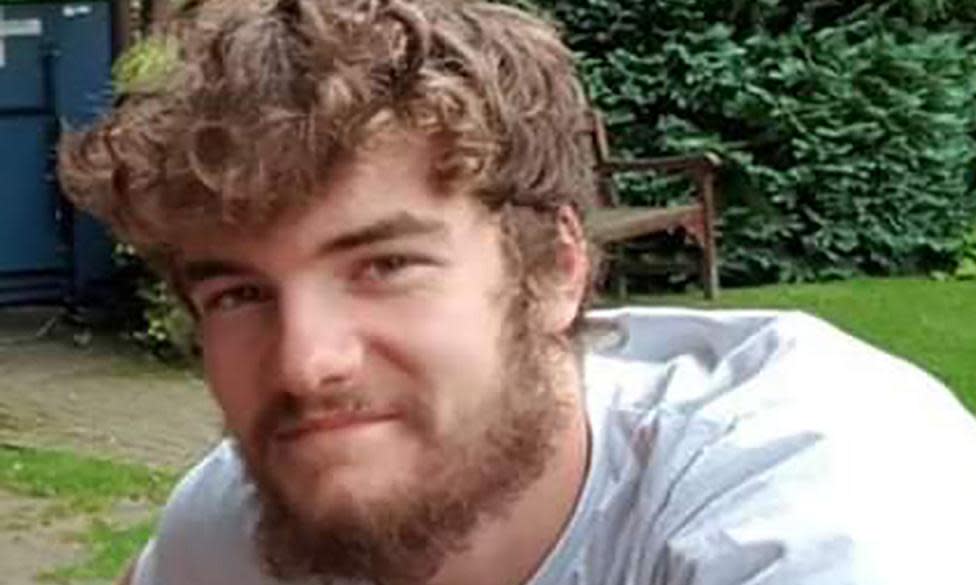Major who helped carry royal coffin denies calling recruit who died a ‘failure’

A Royal Marines major who was a member of the bearer party for the Duke of Edinburgh’s coffin has denied telling a teenage trainee who is believed to have taken his own life that he was the “worst recruit” and a “failure”.
Maj Mark Thrift also said he could not understand why a search for Connor MacKenzie Clark, whose body was found on a railway track in Devon a few metres from the training camp, was not launched when he was reported missing.
Clark’s family believe his death was avoidable and are concerned about how he was treated by trainers and fellow recruits. At the start of his inquest in Exeter, his mother, Tracy, said he was kind, generous, thoughtful and selfless. He loved rugby and had decided aged 13 he wanted to be a marine.
Clark was taking part in a four-week course called recruit orientation phase (ROP) at the commando training centre in Lympstone in the summer of 2021. He had struggled with his “personal administration” – a military term for keeping uniform, kit and locker in order – and was frightened at losing a piece of equipment, a blank firing attachment.
The inquest, which is due to last all week, is to hear evidence that there was hostility between recruits with many “lashing out at each other” and that training staff could be aggressive.
Thrift, who has served in Afghanistan, said “thrashings” – punishments such as a hard run – did take place. He said some people had an overly romantic idea of what being in the marines was like from films and brochures. But he said the course was not supposed to be a “short, sharp shock” and he did not know of recruits or staff being aggressive to Clark.
The major was questioned about a note that Clark had left in which he said he had been called “a failure and the worst recruit” by a captain. Thrift accepted that at the time he was the only captain there and said he had told Clark he was “failing” at one point but denied he had called him a failure or the worst recruit.
Clark’s roommates reported him missing at 5am on 12 June 2021. He was struck on the line next to the camp. The inquest heard that the first train passed at 7am.
Thrift said: “I don’t understand how he could have been outside the wire for two hours perhaps sitting considering what he was about to do. I don’t know why we didn’t search. We are part of a family. A member of our family was missing and had been outside the wire from maybe just after midnight. I would have thought we would have searched.”
The teenager is believed to have used a duvet to get over the razor wire, and his water bottle was found close to the fence.
Thrift, who described himself as a “father figure”, told the inquest that it had not crossed his mind that a cut Clark had on his arm could have been self-inflicted, saying he had believed the teenager’s story that he fell against a radiator.
The inquest continues.
• In the UK and Ireland, Samaritans can be contacted on freephone 116 123, or by email at jo@samaritans.org or jo@samaritans.ie. In the US, you can call or text the National Suicide Prevention Lifeline on 988, chat on 988lifeline.org, or text HOME to 741741 to connect with a crisis counselor. In Australia, the crisis support service Lifeline is 13 11 14. Other international helplines can be found at befrienders.org

 Yahoo News
Yahoo News 